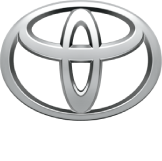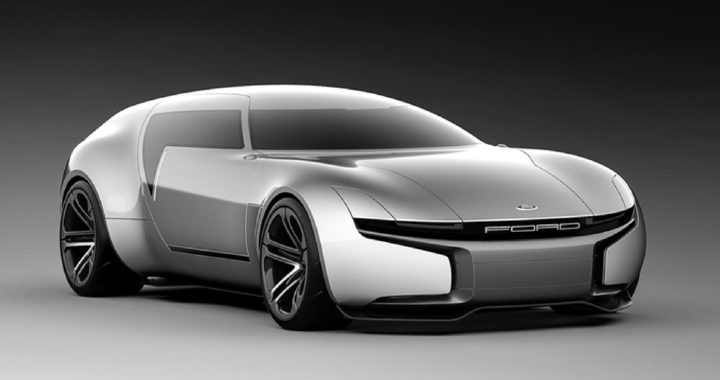Ford’s Newest Models Won’t Just Run on Hot Air. CEO Jim Hackett has a love of whizzy business concepts. This stuff might work in the tech sector, but autos investors want something more potent.
Technology investors like company CEOs to sound farsighted and a little quixotic. Gnomic statements are interpreted as a sign of rare and profound wisdom that someday will deliver vast riches for the true believers. Sadly for Ford Motor Co boss Jim Hackett, shareholders in the car industry aren’t nearly so credulous – nor patient.
Hackett hung out with Silicon Valley types during his two decades running Steelcase Inc., an office furniture company. You can thank that company for popularizing today’s open-plan offices. The Ford chief’s residual fondness for big ideas is reflected in his sometimes baffling lexicon, which includes whizzy concepts such as “design thinking,” “[business] fitness,” “energy rooms” and the “now, near, far clock.”
So far investors haven’t warmed to his approach. During his 18-month tenure, Hackett has had several testy exchanges with Wall Street analysts, canceled a capital markets event and pushed back a profit target. Ford’s shares have shed more than one-third of their price this year to levels last seen in 2009.
To get investors singing a more upbeat tune in 2019, Hackett needs to translate the fancy talk into concrete, value-creating action – something the General Motors boss Mary Barra has done better lately.
In fairness, even someone with decades of experience in automaking would blanch at the challenge Hackett has taken on. While Ford’s trucks, vans, and finance units are in decent shape, much of the rest has been struggling for a while. The company makes almost all of its profit in North America and its previous management was too slow to restructure overseas units and cut car models that don’t cover their cost of capital.
It’s not an easy course. France’s finance minister gave a hint of the unpleasantness facing Hackett when he described Ford’s decision to close a French gearbox plant as a “betrayal.” Hackett has announced a group-wide $11 billion restructuring but he’s been slow to spell out what this will involve. Though painful for employees, he shouldn’t delay wielding the ax too long.
Ford’s China sales have gone into a tailspin, putting pressure on cash flow, and sterling’s Brexit-related weakness has weighed on its once thriving U.K. business. President Donald Trump’s steel tariffs don’t help.
The stock offers a more than 7 percent dividend yield, which suggests the payout is becoming unaffordable. (Morgan Stanley analyst Adam Jonas thinks it will be cut by half next year; Ford says there’s no need). There are worries too about whether Ford will keep its investment-grade credit rating, which supports profit at its finance arm. Hence two-thirds of the analysts who cover Ford have a hold recommendation, indicating they don’t see the reason to buy the stock even at depressed levels.
Ford’s market value is less than the much smaller, historically cash-burning Tesla Inc. If Uber Technologies Inc. goes public next year, its backers hope to secure a $120 billion valuation, almost four times what Ford’s worth. Somehow Hackett needs to show that Ford isn’t about to be pushed aside by these young pretenders. He can start by providing clarity on his restructuring plan. But there are other, more positive, levers he can pull.
One is securing a partnership with Germany’s Volkswagen AG to cut costs in manufacturing and technology development, as Bloomberg has reported is under discussion. The two carmakers have complementary strengths and weaknesses. VW lags in trucks but has a more advanced electric vehicle platform, for example. It’s conceivable that together they could boost plant utilization, most probably starting with commercial vans.
Another prize would be for Ford to secure outside investors, perhaps including VW, for its Argo AI autonomous driving unit. GM’s Cruise unit managed to do so by winning investment from SoftBank Group Corp. and Honda Motor Co Ltd. Something similar at Ford would let shareholders ascribe a value to its big investments in this area. Honda’s cash valued Cruise at $14.6 billion.
Finally, Ford needs to fix its China business, and fast. Sales there have plunged by one-third this year, in part because of its failure to understand local tastes. The company has appointed a new China chief and a slate of new models should help.
None of this will suddenly land Ford a Tesla-like stock multiple, of course. But they might help make 2019 a year to remember, rather than one of Ford’s “ideas man” boss would rather forget.
This column does not necessarily reflect the opinion of the editorial board or Bloomberg LP and its owners.
https://www.bloomberg.com/opinion/articles/2018-12-28/ford-motor-s-newest-models-won-t-just-run-on-hot-air
| To contact the author of this story: Chris Bryant at cbryant32@bloomberg.net |
To contact the editor responsible for this story: James Boxell at jboxell@bloomberg.net |
Useful Links: Free Business Book Reviews / Affordable website design /


I’m interested Investing in Luxury cars
hello, how can i solve this problem with this page showing?